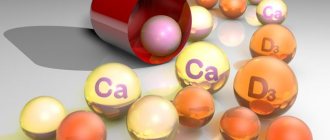Coffee contains a huge number of different substances. Among products of natural origin, coffee beans remain the record holders in terms of the number of constituent components. They contain not only organic, but also inorganic components. It is thanks to this diversity that this popular drink is able to have such a powerful effect on the human body. It is curious that it affects almost all organs and tissues. When you drink another cup of aromatic coffee, its composition directly affects the reaction of your body. This is why it is so important to know what coffee beans are made of and what happens to these substances during roasting. Let us warn you right away that the chemical composition of coffee is very complex and confusing. According to the most conservative estimates of scientists, coffee contains about 1200 substances. We will take a detailed look at the composition of coffee beans, their nutritional value, as well as their effect on the human body.
Coffee: chemical composition
After you drink a cup of coffee, the chemical composition of this product directly affects how you feel. It is curious that scientists have calculated about 1,200 different components in coffee. The effect of many of them on our body has been practically unstudied. The majority are aromatic substances. It is thanks to these volatile compounds that coffee captivates us with its amazing aroma. They also directly affect the taste that the drink acquires. Since the taste of coffee depends specifically on volatile compounds, it is so important to store coffee beans and ground coffee in tightly closed, airtight containers or special bags. The main enemy of coffee is oxygen. Under its influence, coffee components quickly oxidize and also volatilize.
The composition of coffee is complex. It has not yet been fully studied. But its main components are well known. The most important among them is caffeine. The concentration of other substances will directly depend on the type of coffee and the soil on which it grew. By the way, many substances appear during roasting of grains. About 80% of them are responsible for the taste of the final drink. Coffee consists of:
- alkaloids;
- phenolic compounds;
- proteins;
- sugars and polysaccharides;
- organic acids;
- lipids;
- minerals;
- amino acids, etc.
Different types of coffee contain approximately the same amount of protein – 9-10%.
Carbohydrates make up about 50-60% of the total mass of coffee. They include cellulose, sucrose, pectin and polysaccharides. Among them, the polysaccharide with the difficult name arabinogalactan dissolves best in water. Its share is 2-5% of the total mass of coffee beans. It was previously believed that raw coffee did not contain monosaccharides, in particular glucose and fructose. But now there are already research results in which sucrose was discovered in Arabica. But fructose and glucose are also found in Brazilian coffee. But when beans are roasted, the carbohydrate complex changes significantly. For example, sucrose practically disappears. But monosaccharides, although they decrease in quantity at the initial stages of roasting, are restored at the end of it. Some of them are consumed during caramelization of coffee beans during roasting.
Composition of different coffee drinks
Coffee as a product available to a wide range of consumers on the Russian market is represented by such brands as:
- Jacobs (Monarch);
- Jockey (Turkish, classic, Viennese);
- Nescafe (Classic);
- Lavazza (Cremo, Espresso);
- Chibo;
- Jardine.
Most of them contain Arabica of Brazilian origin called Santos, which is blended with other varieties and Robusta. The world-famous Italian brand Lavazza works with rarer varieties of coffee, although it also purchases Brazilian products to improve the taste of its original blends. There are varieties of coffee that, when roasted and further prepared, give a pleasant chocolate aroma and taste. They contain special essential oils, which provide the product with notes of cocoa in the aroma. Coffee in capsules for a coffee machine does not differ in composition from grain coffee.
The composition of coffee as a finished drink depends on its type. Today there are dozens of recipes for making coffee, from the beloved Cappuccino and Glass to the rare Bicherin. The ingredients of the drink can be very different from regular or whipped cream, Amaretto to exotic liqueurs and spices. The figure below shows the composition of coffee prepared according to different recipes. This list can be supplemented by French coffee, which has a pronounced creamy taste due to the combination of sweet milk with whipped cream.
There are groups of special coffee drinks designed for people leading a healthy lifestyle, those who react negatively to caffeine, and those losing weight. These, for example, include Leovit products. These are drinks made from green coffee beans, enriched with vitamins and other functional components, which increase performance, improve lipid metabolism, prevent the accumulation of fat, and replenish vitamin deficiencies. These are instant products packaged in bags for one-time preparation of a drink.
Many well-known brands offer decaffeinated coffee to the market. This is both ground and instant coffee with a minimal alkaloid content in the composition. It is intended for people with hypertension and other categories of buyers who, for a number of reasons, cannot drink a drink with properties that stimulate the nervous system.
Today, not all information about the composition of coffee beans is available to us due to its complexity and the long chain of transformations of some components into others during the processing of the product and its storage. But the information behind the research of scientists speaks more about the greater benefits of the drink for humans than its harm. Although everyone who starts the day with a cup of coffee will never exchange its taste and aroma for another, even the healthiest drink!
Caffeine
Caffeine is the main active ingredient in coffee. Thanks to its effects, our body is charged with vigor, vascular tone increases, and the functioning of the brain, gastrointestinal tract and other systems improves. It is not for nothing that caffeine was included in the list of medicinal substances. It has long been used in some medicines. The most famous of them is Citramon.
Caffeine is the most important alkaloid found in coffee beans. It has no color or smell. In aqueous solution it has a bitter taste. Different types of coffee contain different amounts of caffeine. The quality characteristics of the raw material directly depend on its concentration. The more it is, the more coffee beans are valued.
Why does caffeine affect our body so much? It is an alkaloid that can stimulate the central nervous system. It is this ability that ensures such a violent reaction of the human body to drinks with a high caffeine content. It is interesting that caffeine was first obtained from coffee beans. That is why this substance was called caffeine. It is this powerful alkaloid that provides the tonic effect of coffee. However, this drink not only tones, but also increases performance, physical and mental. To ensure this energizing effect, coffee producers strictly monitor the caffeine levels in the beans they use. The norm is no less than 0.7%. It is this alkaloid content that ensures the sustained tonic effect of coffee.
What determines the final level of caffeine content in coffee beans? First of all, the degree of ripening of the grains plays a role. The better they ripen, the more caffeine they accumulate. Roasting the beans also plays an important role. The more they are roasted, the greater the caffeine concentration. If the recommended concentration is maintained, then a teaspoon of ground coffee contains about 0.1 - 0.2 g. caffeine in its pure form. This amount will be quite enough to get a pronounced tonic effect. But doctors do not recommend increasing this dose. Otherwise, you may get a negative response from the body to an overdose of caffeine. The maximum dose you can afford is a concentration of 0.3 g. caffeine in one go. After this, you should completely abstain from drinking coffee for 3-4 hours.
What happens if a person exceeds the dose of caffeine? Regularly exceeding the dose of caffeine recommended by doctors can lead to the following negative consequences:
- the work of the heart will increase;
- excitability will increase;
- sleep may be disturbed, etc.
Number of calories in pure coffee
So, an ordinary cup of a “pure” drink (200 ml) will reward you with only two kilocalories! For comparison: a standard serving of sugar adds at least 20 kcal. If you just take 100 grams of the original product, then the nutritional value of natural coffee for the average person will look like this:
- caloric content about 200 kcal (12% of the daily value);
- proteins, fats and carbohydrates (bzhu) – 13.9 g (18%), 14.4 g (24%) and 4.1 g (2%);
- vitamins B1, B2 and PP – 0.07 mg (5%), 0.2 mg (11%) and 19.3 mg (97%);
- phosphorus – 198 mg (24.8%);
- magnesium – 200 mg (50%);
- iron – 5.3 mg (29.4%);
- calcium – 147 mg (14.7%).
All indicators are averaged, that is, there may be differences with different weight, height and gender. The data can be used not only when brewing a drink, but also in cooking, in particular when preparing confectionery.
Trigonelline
Coffee contains several alkaloids. One of them is trigonelline. Most of it is found in Arabica. But in Robusta and Liberica varieties there is a little less of it. Without heat treatment, this alkaloid is completely tasteless and odorless. It is highly soluble in water, but is unstable when exposed to high temperatures. When the grains are roasted, it is transformed into another substance - pyridine. It has a pronounced specific aroma. Trigonelline can interact closely with nicotinic acid. This is vitamin B3. When heated, the nicotinic acid molecule contained in trigonelline is released. This is why there is a consistently high level of vitamin B3 in coffee. By the way, our body really needs it. It is thanks to nicotinic acid that we have an active metabolism. It also helps our nervous system function properly. If there is a deficiency of vitamin B3 in the body, the nervous system immediately suffers and metabolism deteriorates. This also threatens the development of such a terrible disease as pellagra.
Coffee beans contain more than just vitamin B3. There are other vitamins in this group. Each of them is extremely important for our body to function properly. It is curious that after heat treatment of the grains occurs, a whole spectrum of B vitamins is immediately formed in them. Also in this aromatic drink, a fairly high concentration of vitamins A, D, E was found. Each of them has its own important function:
- Vitamin A ensures the growth and development of the body.
- D helps to better absorb phosphorus and calcium in our intestines.
- Vitamin E is a natural stimulant of our immune system and helps renew our cells. This is the vitamin of youth.
It is very important that coffee contains many essential organic compounds. These are acids and essential proteins. For our cells they are a source of energy and continuous nutrition. Without them, it is impossible to renew our tissues and organs, as well as the functioning of the body as a whole. By the way, coffee has become that unique plant product that contains the most important amino acids. Our body mainly receives them from fish or meat. Our body is not able to synthesize these amino acids on its own, which is why it is so important that it regularly receives them from the outside. Without amino acids, the process of cell restoration will simply be impossible. But this is extremely important for our organs and tissues. If the body does not regularly produce new cells, the body will simply begin to age. Without this, internal organs will also not be able to function normally, and immune defense will not work.
Harm and contraindications
Despite the fact that moderate consumption of the drink does not pose any particular harm to the body, large amounts of it can affect bone health and calcium levels in the blood. “Poor quality coffee can contain many impurities that can cause nausea, headaches or general ill health,” the expert added. - It can also provoke insomnia and anxiety. If you have high cholesterol, it is better to choose filtered coffee. Cafestol and kahweol contained in coffee increase the level of LDL cholesterol (with low-density lipoproteins. - Ed.), so filtration is necessary - it reduces the level of LDL." February 14, 14:12 The doctor named the permissible number of cups of coffee per day. Also, according to the specialist, Contraindications for drinking the drink are:
- -stomach problems;
- -pregnancy;
- — diseases of the cardiovascular system;
- -childhood;
- -hypertension;
- — diseases of the nervous system;
- —insomnia, etc.
In addition, coffee is harmful to people with mental disorders because it can provoke anxiety, nervous agitation and even panic attacks.
Tannin
Raw grains contain quite a lot of tannin - 4-7%. But after roasting, its concentration decreases. Only about 1% or less remains in the finished grains. Tannin is highly susceptible to oxidation. Already under the influence of 80 degrees, its transformation begins. By the way, it is due to the oxidation of tannin that coffee beans acquire a pleasant brown tint during roasting. It is formed by dark pigments resulting from the oxidation of tannin. Scientists don't think so. That the destruction of tannin negatively affects the characteristics of coffee. On the contrary, it is this process that leads to the fact that coffee acquires its characteristic taste and shade. But if the grains are heated too much, the tannin will completely decompose. This is why some coffee beans give off an unexpressed, empty taste later. This means that the beans were not roasted correctly and the tannin was completely destroyed.
What are the benefits of coffee?
As soon as you mention coffee out loud, you can immediately feel all the pleasant aroma of a tasty and unique drink. Teas also do not lose their relevance, and many people have been discussing for a long time regarding which one is better to give preference. Speaking about the benefits of coffee, first of all it is worth mentioning its high qualities:
- Stimulating effect.
- Tonic effect.
- High percentage of antioxidant content.
- The risk of developing a number of diseases is reduced.
The stimulating effect is achieved due to the caffeine content, which everyone who takes this drink in the morning knows about. What is the peculiarity here? The fact is that thanks to this active component, which is included in the chemical composition of coffee beans, the blood supply to the brain is significantly improved, and short-term memory is often activated. Due to this, a person can quickly make the necessary decisions.
The tonic effect also benefits the human body. You can forget about stress, apathy, lethargy, drowsiness and other similar manifestations, since coffee helps fight these ailments.
Everyone knows that when iron interacts with oxygen (which is abundant in the air), it begins to rust over time. Something similar happens in our body and oxygen free radicals take part in this. Thanks to antioxidants, these radicals are neutralized, and the higher their concentration in the body, the better the protection. One cup of morning coffee contains up to 1 gram of nutrients, which is a quarter of the daily value.
If you regularly drink such an invigorating drink, you can protect yourself from many risks:
- liver oncology;
- Alzheimer's disease;
- diabetes mellitus;
- alcoholic cirrhosis of the liver.
And if you also refrain from adding sugar to your drink, caries is not scary! The immune and digestive systems are also protected.
Chlorogenic acids
The main part of the phenolic compounds in coffee consists of chlorogenic acids. These are esters of two acids - quinic and cinnamic. Scientists also discovered esters of ferulic and caffeic acids in coffee beans. There are about a dozen different compounds in chlorogenic acids. If raw coffee contains 7-10% chlorogenic acids, then roasted coffee contains 2.5 times less. This is explained by the fact that acids are destroyed during heat treatment of grains. At the same time, the proportion of quinic acid and caffeic acid in coffee increases. Chlorogenic acids have also been found to directly affect the color of roasted coffee.
How to choose the right coffee
It is believed that the best type of coffee is 100% Arabica. However, its mixtures with Robusta are more often presented in stores. To purchase Arabica beans, you need to carefully read the label. When buying ground coffee, it is better to give preference to Brazilian, Colombian, and Indian. A good quality product is packaged in Italy and Germany. Depending on your taste preferences, it is important to pay attention to the degree of grinding and roasting. A medium grind is suitable for Turks; a medium roast will have the most balanced taste. It is better to buy coffee beans in a sealed bag with a valve, and the packaging must be undamaged. It is also worth choosing proven and more expensive brands. When buying an instant product, it is better to buy a freeze-dried one - it makes a tastier drink.
What does a caffeine molecule look like?
Let's take a closer look at the structure of the caffeine molecule. This will help you understand how it works. Scientists have found that raw coffee beans contain half the carbohydrates. They are a kind of fuel for our body. They give energy to every cell of ours. These carbohydrates are mainly simple sugars (fructose, sucrose) and polysaccharides (fiber, cellulose, pectin). These substances are simply irreplaceable for our brain. They are directly involved in its nutrition. Sugars and polysaccharides nourish nerve cells. This ensures normal functioning of the brain and nervous system.
Coffee also contains minerals:
- magnesium;
- potassium;
- calcium.
These are the most important minerals of inorganic origin. They are found in bones and muscles. Without them, proper functioning of blood vessels and the brain is impossible. These minerals ensure the normal functioning of the heart muscle. Scientists have found that raw coffee beans contain about 850 different essential compounds. But in the fried product their quantity is reduced by almost two and a half times and amounts to 350 units. They provide the amazing aroma of coffee. It is not surprising that this drink has long been recognized as the most fragrant.
How to make delicious coffee
The same delicious drink as in a coffee shop can be made at home. All you need is a few ingredients. For example, coffee with cinnamon is prepared quite simply - you need to add a pinch of spice to the hot liquid. You can also make chocolate coffee. To do this you will need a freshly brewed drink, cream and 100 grams of milk or any other chocolate. Turkish coffee is brewed in a Turkish pot with added sugar. For more sophisticated connoisseurs, a recipe for coffee with salt and orange is suitable. To prepare it, you need to mix 1.5 tablespoons of orange zest, the same amount of orange juice and sugar with a pinch of salt, and then pour the finished mixture into the drink and stir. To make coffee with ice cream, add it to a slightly cooled drink.
For many, a new day begins with a cup of invigorating strong espresso, a gentle latte is drunk at lunch, and the work day ends with a sweet cappuccino. The calorie content of coffee depends on the variety, type, ingredients, their quantity and volume, recipe and other nuances.
What nutritional value does coffee have?
Like any product, coffee has its own nutritional value. As you know, it is measured in calories. Let’s immediately make a reservation that natural black coffee without sugar and other additives has a minimum amount of calories. This is explained by the fact that the substances it contains are very easily absorbed. The body easily absorbs them and quickly digests them. This process is also stimulated by caffeine, which is found in large quantities in coffee beans. So everyone. Anyone who doesn’t want to gain extra pounds can be recommended to regularly drink a cup of natural, fresh coffee. But to avoid complications, you should drink no more than two cups of this weak drink per day. To prevent your body from being overloaded with calories, it is better not to add sugar, cream or milk to your coffee. The ideal option is black coffee without sugar. If you have a sweet tooth and don’t like to feel the bitter taste in your mouth from coffee, then add a little sugar to it. One teaspoon will be enough.
Calorie content of coffee and drinks made from it
There is a wide variety of drinks around the world that are prepared based on traditional espresso. Depending on the additional ingredients and volume, the calorie content of one serving in kcal can be as follows:
- unsweetened espresso – 1-2;
- unsweetened double espresso – 4;
- Americano – 2;
- in Turkish – 12;
- unsweetened cappuccino – 75;
- moccacino – 290;
- glasse – 125;
- Frappuccino – 400;
- raf – 84;
- instant coffee drink – 15-17;
- 3 in 1 – 60.
How many calories are in coffee without sugar?
This is the most dietary product with the lowest energy value. The calorie content of coffee without sugar is small - only a few kilocalories in one cup, but even a couple of spoons of sweetener can increase this figure many times over.
Calorie content of coffee with sugar
Black coffee has a sour taste if it is brewed from Arabica beans, and a bitter taste if Robusta beans are used. In the case when the ground mass combines both varieties, the taste is sourish-bitter. To improve the taste, a sweetener is usually added. But when adding sugar to a drink, you need to remember that every spoonful makes it more nutritious.
The nutritional and energy value of a sweet drink depends on how many spoons are added, what the final volume is, and what other ingredients are used. But you can calculate the indicator for a specific drink if you know how much sweetener will be added. A level teaspoon of sugar contains about 19 kcal, and a heaped teaspoon – 31 kcal, which means that 200 ml of drink contains approximately 57 kcal.
Many people use natural or artificial sweeteners instead of sugar. Natural sweeteners are sucrose, fructose, stevia, xylitol. Synthetic sweeteners, as a rule, do not contain calories, but natural ones, despite their fairly high nutritional value, are much healthier. The energy value of a cup of espresso with sweetener and medium-fat milk (70-80 ml) will be about 60-70 kcal, with fructose - about 100 kcal.
With the addition of milk, the taste becomes more delicate, but the calorie content of coffee also increases. All other milk components also work.
The calorie content of coffee with milk without sugar is about 58 kcal. Which is significantly higher than without a dairy ingredient, but lower than a drink with a sweetener. The calorie content of coffee with milk and sugar depends on the fat content of the milk used, as well as on how much sugar is added. For example, if you brew 200 ml of black coffee, add a couple of spoons of sugar and pour in 50 ml of milk (3.2%), you will get a drink with 90 kcal. The calorie content of coffee with cream is quite high, so it is better to use a dairy component with less fat content. One serving of black coffee with 50 ml of cream (at 10% fat) contains 100-110 kcal.
Calorie content of coffee drinks
Restaurants and coffee shops offer a large selection of coffee varieties, which are usually prepared using an espresso base with various ingredients. Each drink has its own nutritional and energy value. It all depends on the volume, the included components, and the method of preparation. For this reason, the calorie content of coffee drinks varies depending on the recipe and raw materials, even for the same type of coffee prepared in different places.
Calories in instant coffee
100 g of coffee powder/granules contains 90-100 kcal. It would seem that this is a rather large number if daily calorie counting is carried out. But to prepare a cup of an invigorating drink, you will need 1-2 tablespoons of dry matter, so the calorie content of a serving of instant coffee is small.
To make 200 ml of the finished product, several spoons of powder or granules are poured with boiling water. One small heaped teaspoon contains 6 kcal, but high-calorie additives (sugar, honey, cream, ice cream) increase the nutritional and energy value of the drink.
“3 in 1” coffee has gained popularity due to its pleasant taste and quick preparation. Unfortunately, the drink contains only 10-15% coffee, the rest is sugar, dry cream, flavorings and other chemical additives. One sachet (12.5 g) contains 50-60 kcal.
How do other ingredients affect the energy value?
True connoisseurs of the drink drink black espresso, but not everyone is a fan of the bitter and sour taste. Most people prefer to add sweetener and dairy.
What else can you use to make coffee:
- Condensed milk. A favorite ingredient that takes you back to childhood. Condensed milk will add a sweet milky taste, but the calorie content of coffee will increase significantly. 100 g of condensed milk contains 300 kcal, and one spoon – 36 kcal.
- Liqueurs. Sweet alcohol gives coffee an unusual taste, but also makes it higher in calories. Liqueurs are different, and the energy value may vary depending on what type is added to the drink. 100 ml of sweet alcohol contains at least 70-80 kcal.
- Syrups. The energy value of chocolate syrup is 149 kcal/100 g. A teaspoon of the sweet ingredient adds 37-40 kcal.
- Ice cream. To prepare homemade iced glass, first brew classic espresso, pour it into a cup, and put ice cream on top. With a 100 g scoop of ice cream, the calorie content of 100 ml of espresso will be 114 kcal.
How healthy is coffee?
If you regularly drink this invigorating drink, you must be wondering how beneficial it is for our body. The type of coffee and method of preparation also play an important role. This product is rich in proteins, fats, it contains vitamins A, B, E, D, as well as such important minerals as phosphorus, potassium, calcium. All these substances provide the effect that coffee has on the body. It can be either positive or negative. This contradictory influence is due to the fact that coffee contains simply a huge number of components. Each of them affects our body in its own way. In addition, a person may have individual susceptibility to them. It is also important how much drink a person drinks per day, what concentration.
Doctors have calculated a safe dose of coffee for humans - a couple of cups per day. However, you should not brew a drink that is too strong. Try to brew coffee of medium concentration, and do not drink it more than twice a day. Also, do not drink coffee later than 4 hours before bedtime.
Let's take a closer look at exactly how coffee affects our body. Here are the main characteristics of its effect on the human body:
- If you regularly drink strong enough coffee, you can cause coffee addiction. To do this, you need to drink an amount of coffee per day that contains about 1000 mg of caffeine. This is what causes the addictive phenomenon. This addiction is very similar to alcohol or nicotine addiction. Getting used to coffee is that over time, the substances begin to have less and less pronounced effects on a person who drinks this drink in sufficiently large quantities. If at first coffee invigorates well and stimulates performance, then as you get used to it, this effect becomes less pronounced. To get the initial effect, a person is forced to drink more and more coffee. This is where getting used to it begins.
- Diuretic effect. Scientists have long noticed. That coffee has a pronounced diuretic effect. True, it doesn't last long. At the same time, excess fluid is removed from the body. This is why it is recommended to drink coffee for swelling. But if you eat or drink too much of it, you risk getting dehydrated. And this is already fraught with disruption of the functioning of internal organs. To prevent disastrous consequences, nutritionists recommend not overusing coffee. After you've enjoyed a cup of coffee, drink a glass of clean water and you won't get dehydrated. If you still brought it to this. When the first signs of dehydration begin to appear, just start drinking more. For this, clean, unboiled water, preferably bottled, is best suited. You can also supplement it with a glass of mineral water. It will replenish mineral deficiency.
- Coffee may slightly increase your blood pressure. This effect is due to the fact that this invigorating drink stimulates blood vessels. They become toned, and the pressure rises slightly. That is why it is not recommended to drink coffee for those who suffer from hypertension. This drink can immediately increase blood pressure by 15 mmHg. Moreover, this indicator applies to those coffee lovers who do not suffer from various vascular and heart diseases. But for the latter, pressure readings can jump significantly higher than 15 mm. But for some people, after drinking coffee, their blood pressure may, on the contrary, drop. This reaction of the body is due to the fact that coffee has a diuretic effect. This may also be due to the individual characteristics of the body. But basically, coffee is very useful for those who are prone to low blood pressure. In hypotensive patients, after a cup of aromatic drink, blood pressure can stabilize, performance increases, and headaches go away.
- Coffee may affect the functioning of the heart. True, this influence is indirect. But indirectly this drink affects the functioning of the heart in the following way. After that. As caffeine enters the body, the nervous system is stimulated. After stimulation of the central nervous system, blood pressure increases. But the increased pressure itself begins to stimulate the heart. It accelerates its rhythm, the load on it increases. The degree of increase in load will depend on the dose of caffeine, the general condition of the body, as well as the individual sensitivity of the coffee components.
- Drinking unfiltered coffee regularly can cause an increase in cholesterol levels in your blood. This is extremely undesirable, since elevated cholesterol levels lead to blockage of blood vessels and their pathologies. This is fraught with problems with blood pressure. Over time, a stroke or heart attack may even develop.
- Coffee can increase the level of attention and stimulate memory. This effect is associated with its effect on the central nervous system. After stimulating the nervous system, a person’s brain activity improves. This means that coffee can actually improve performance. But this phenomenon is temporary. The pronounced effect does not last long - from half an hour to two hours after drinking the coffee. Interestingly, this drink can also improve your mood. It is even recommended to drink it in the initial stages of depression. The effect of the drink on the body will also depend on the individual characteristics of the person and his state of health.
- The effect of some medications may be enhanced. We are talking, first of all, about the effect of painkillers. Caffeine enhances the effect of analgin and acetylsalicylic acid.
- Interestingly, according to scientists, caffeine reduces the risk of developing Alzheimer's and Parkinson's diseases. This is due to the fact that it directly affects the neurons of our brain, and also temporarily constricts blood vessels. At the same time, the brain and blood vessels receive a kind of training.
- If you regularly drink natural coffee, you will begin to suffer less from constipation.
- The risk of developing liver pathologies, in particular cirrhosis, is reduced.
- Women are less likely to develop breast cancer.
- In older people, coffee can reduce bone density. This is due to its diuretic effect. Since in old age calcium is absorbed worse, and with a diuretic effect it is washed out faster. This can lead to brittle bones. This increases the risk of cracks and fractures.
- Urolithiasis may develop. This applies, first of all, to those coffee lovers who drink more than two cups a day.
- It is not recommended to drink coffee during pregnancy and lactation. It can cause increased blood pressure and negatively affect the fetus. Anemia of the placenta and even miscarriage may also develop. Coffee can cause low weight gain in newborns.
So, we tried to tell you as clearly as possible about the composition of coffee beans. Now you know its main components and their effect on the human body.
Recommended:
- How coffee affects the body
- Coffee and cholesterol
- Can people with high cholesterol drink coffee?
- Coffee and the digestive tract
- How many calories are in coffee
- How instant coffee is made
History of instant coffee
The first mention of a coffee drink created from a concentrate dates back to the mid-19th century, but over the years it is quite difficult to establish exactly how this concentrate was prepared and how successful the idea of “canned” coffee was. But it is known for certain that by the beginning of the 20th century, as many as two patents had appeared in the world for the production of instant coffee exactly in the form in which it is known to us now.
The first patent was received by New Zealander David Strang in 1890. He had a small coffee factory and the opportunity to experiment, so already at the end of the 19th century, Australians had the chance to get acquainted with a unique product at that time called “Coffee Strang Instant Dry Powder.” Alas, Strang’s invention did not reach the people: the Australian’s unusual idea was forgotten after his death.
The second patent belonged to the Japanese Satori Kato and was received in 1901. Being a chemist, Kato approached the issue from a more scientific position. He was excellent at justifying the usefulness of his invention and even presented it at the large Pan-American Exhibition in New York. But the Japanese discoverer of instant coffee did not win the laurels of the winner either: although Sato was considered for a long time the author of this product, the world was not yet ready to admire his discovery.
But in 1910, an American of Belgian origin living in Guatemala finally managed to hit the target. Chemist George Constant Washington created and in a large factory launched the production of instant coffee, which was not the first in the world, but it was the first to become widely known. Washington approached the matter like a businessman: he invested in advertising, and then successfully filled the niche of supplying food to the army during World War II. It turned out that dry coffee concentrate is an ideal thing for those cases when a person does not have the opportunity to prepare natural bean coffee for a long time and tastefully. The soldiers of the American troops were deeply grateful to Mr. Washington, brewing the products of his factory in the trenches, and then brought the idea of \u200b\u200bthe instant drink to their homes. It turned out that their wives also prefer not to stand at the stove with a coffee pot, but to prepare their favorite invigorating product in a couple of minutes using hot water.
Then the technology was picked up by Nestlé, which gave instant coffee a chance to become famous throughout the world.










